Indigenous Governance Database
intergovernmental relationships

Investing in Rural Prosperity Chapter 7: Native America x Rural America: Tribal Nations as Key Players in Regional Rural Economies
The seventh chapter in Investing in Rural Prosperity, "Native America x Rural America: Tribal Nations as Key Players in Regional Rural Economies", outlines the diversity of Native nations, including with respect to governmental structure and economic opportunity. It also explores the history and…
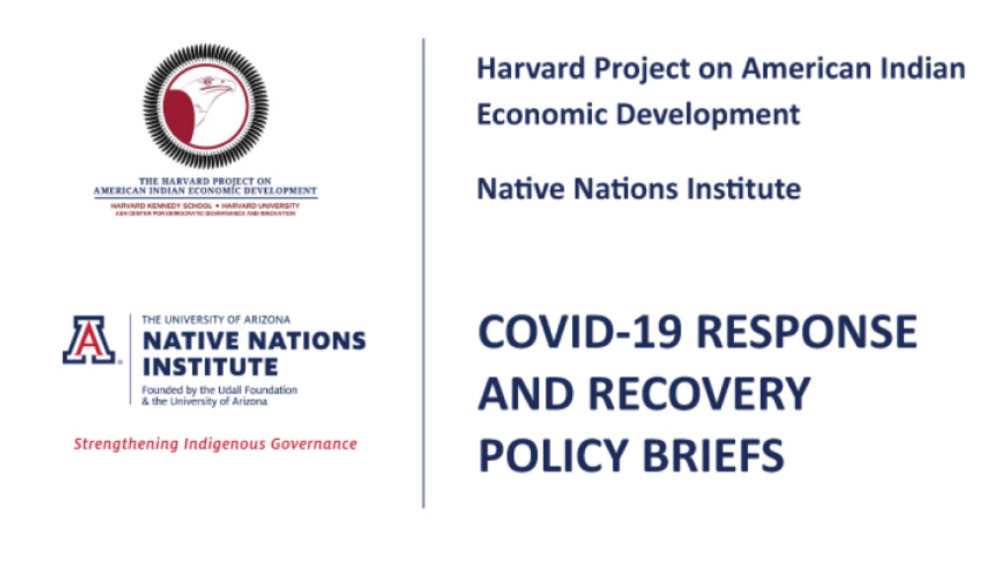
Policy Brief: Assessing the U.S. Treasury Department’s Allocations of Funding for Tribal Governments under the American Rescue Plan Act of 2021
The American Rescue Plan Act of 2021 (“the Act” or “ARPA”) has resulted in the single largest infusion of federal funding for Native America in U.S. history. The core of this funding is $20 billion for the more than 570 federally recognized American Indian and Alaska Native tribal…
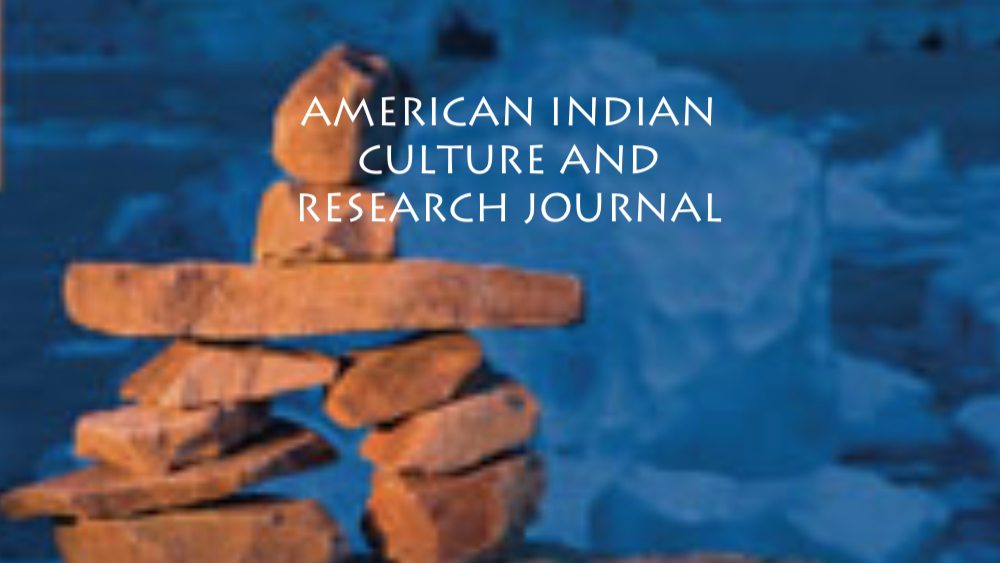
COVID-19 and Indigenous Peoples: Impact of and Response to the Pandemic
In a two-volume, special edition of the American Indian Culture and Research Journal—volume 44, issues 2 and 3—we examine COVID-19’s unique implications for Indigenous Peoples, nations, and communities. We organized these special issues because the COVID-19 pandemic has particularly adversely…
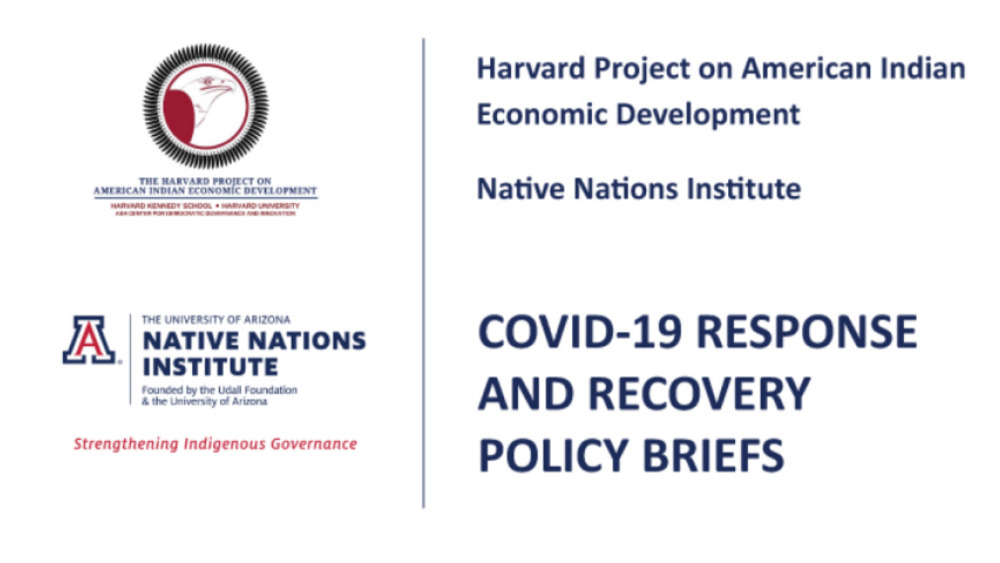
Policy Brief: Recommendations for the Allocation and Administration of American Rescue Plan Act Funding for American Indian Tribal Governments
The American Rescue Plan Act (ARPA) provides the largest infusion of federal funding for Indian Country in the history of the United States. More than $32 billion dollars is directed toward assisting American Indian nations and communities as they work to end and recover from the devastating…
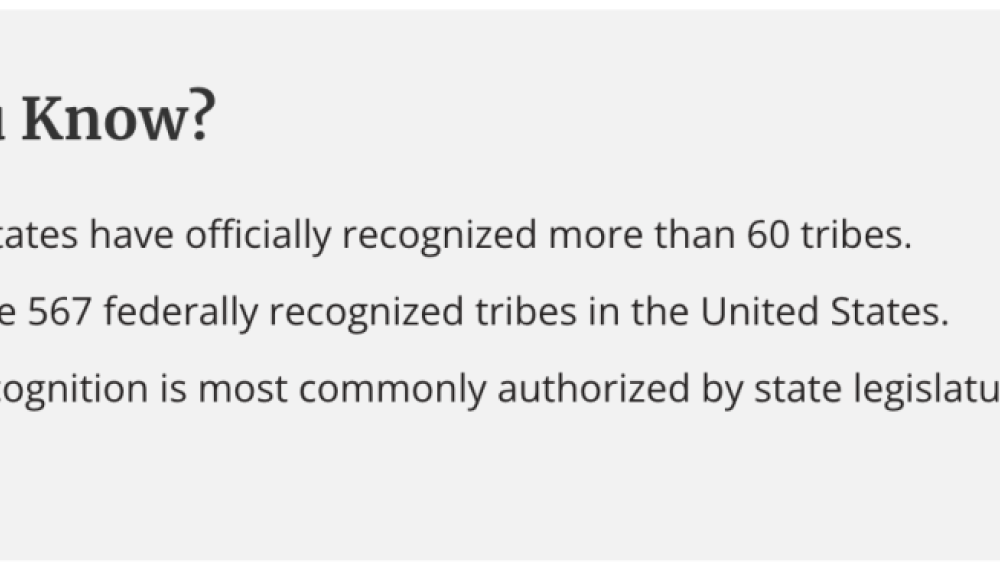
State Recognition of American Indian Tribes
State-tribal relations have a long and complex history in the United States. States’ government- to-government relationships with tribes continue to evolve, taking many forms, including formal recognition. Usually accomplished through legislative action, state recognition of American Indian tribes…
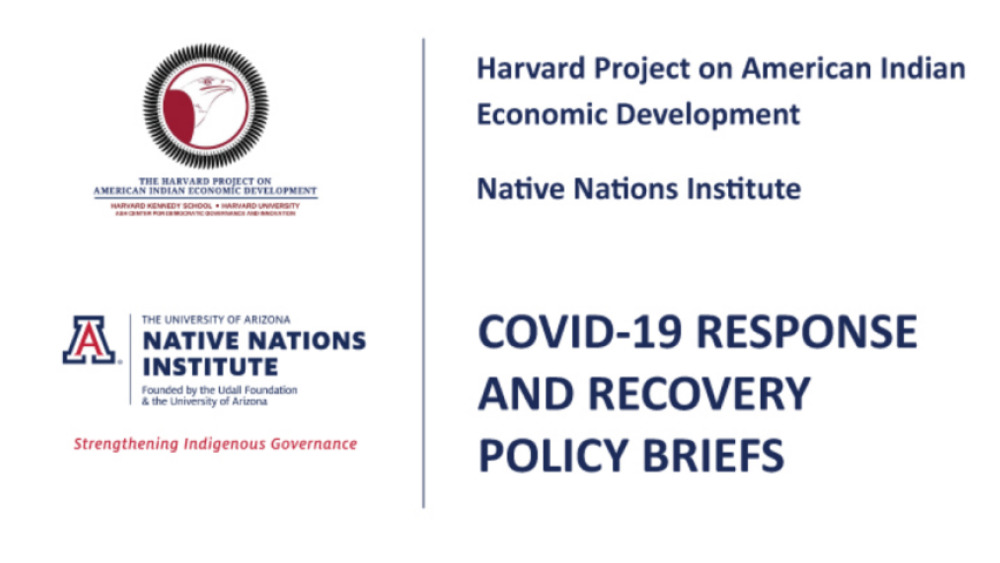
Policy Brief: Dissecting the US Treasury Department’s Round 1 Allocations of CARES Act COVID‐19 Relief Funding for Tribal Governments
In a joint statement, Treasury Secretary Mnuchin and Interior Secretary Bernhardt detailed the amount of CARES Act Title V funds that would be released for federally recognized American Indian tribes starting on May 5, 2010. They noted that the US Treasury Department would “distribute 60 percent of…
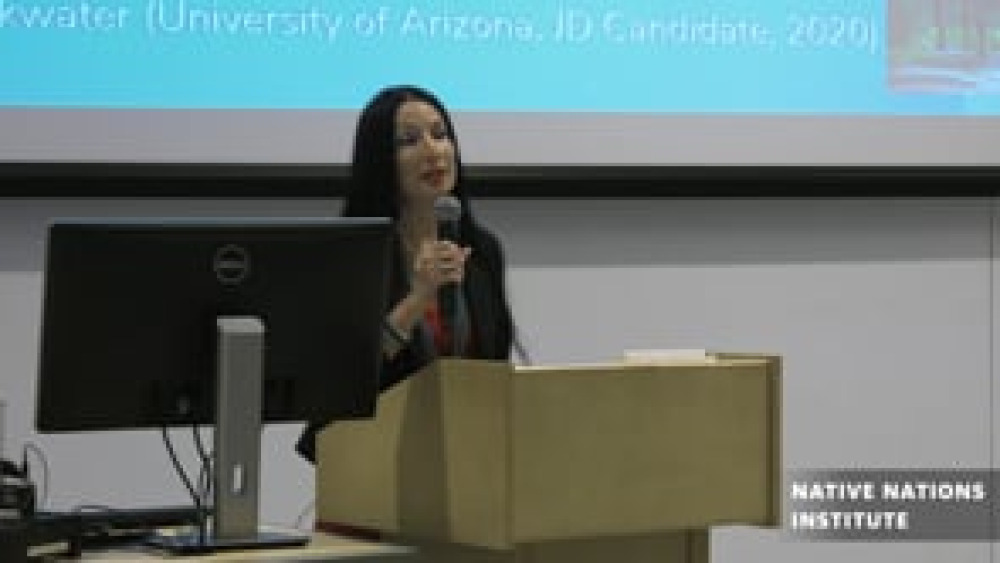
Rebecca Tsosie: Indigenous Sustainability and Resilience to Climate Extremes
The School of Geography & Development presented the “My Arizona” Lecture of Prof. Rebecca Tsosie, Regents Professor of Law at Univeristy of Arizona on Friday, November 1, 2019. Her lecture, "Indigenous Sustainability and Resilience to Climate Extremes: Traditional…
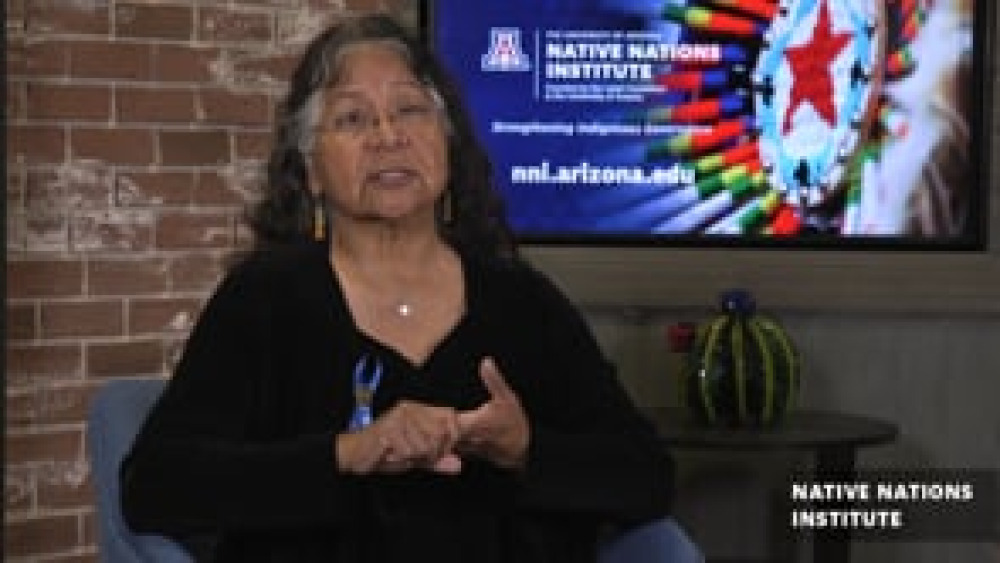
Diane Enos: Endurance through Native Leadership
Diane Enos is an Attorney, Councilwoman & Former President of Salt River Pima-Maricopa Indian Community. She has also served as Vice President of the Inter-Tribal Council of Arizona, Chairwoman of the Arizona Indian Gaming Association, and as a Western Area Delegate to the Tribal Justice…

Good Native Governance Breakout 1: Cultural and Natural Resources Protection
UCLA School of Law "Good Native Governance" conference presenters, panelists and participants Reginald Pagaling, Marcos Guerrero, and Marshall McKay discuss their experience with cultural preservation and cooperation with the local and state governements. Reginald addresses the areas of concerns…

Honoring Nations: Justin Martin: Enhancing Government-to-Government Relationships
Justin Martin, Former Director of Intergovernmental Affairs at Grand Ronde, discusses his nation's relationship in previous years with the state government, and how Grand Ronde was able to build and sustain success over time in the state's legislative arena.

Honoring Nations: Julia "Bunny" Jaakola: Turning Sovereignty into a Practical Reality: The Fond du Lac Band of Lake Superior Chippewa
Julia "Bunny" Jaakola shares how the Fond du Lac Band of Lake Superior Chippewa turned sovereignty into a practical reality through leadership, community engagement, and collaboration with outside entities.
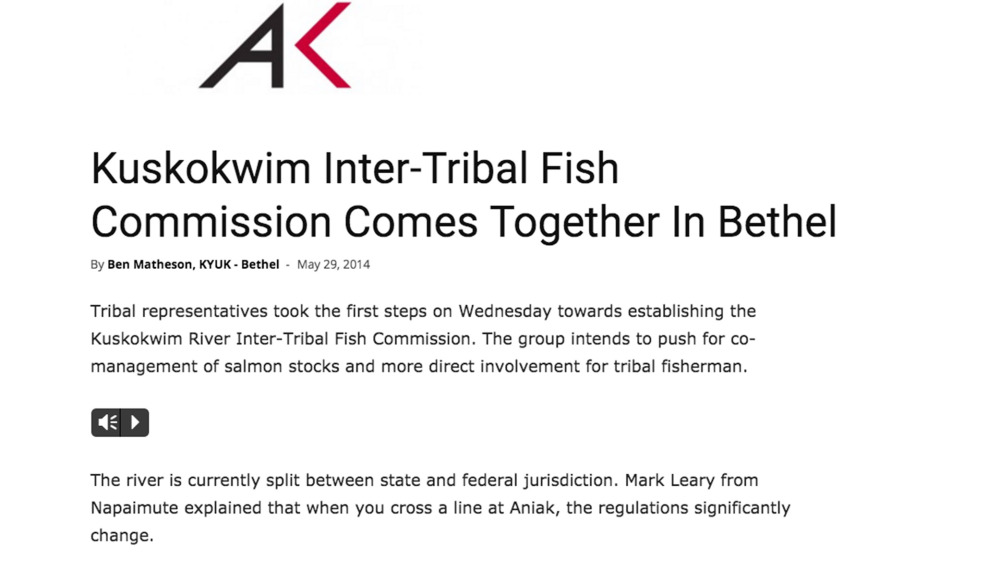
Kuskokwim Inter-Tribal Fish Commission Meets
Just a few weeks before the king salmon run begins in earnest, Kuskokwim tribal leaders came together in the first-ever meeting of Kuskokwim River Inter Tribal Fisheries Commission. The group is pushing to create a system in which tribes have a direct management role in the river’s salmon...

Police Protection in CT Increases: Tribes Can Now Arrest Non-Natives
On Friday, August 1, 27 members of the Mashantucket Pequot Tribal Police received the power to arrest non-Natives on tribal land. “Up until now they could only hold and detain non-tribal members until the state police could come and make the arrest,” William Satti, director of public affairs for…

How Tribal Nations Need to Be Understood Around the World
The word “nation” is one of those words that gets thrown around haphazardly by academics, laypeople and politicians alike; it has become synonymous with “nation-state” and “state” to describe what we understand today as the global polities we refer to as countries. But there are distinctions to be…
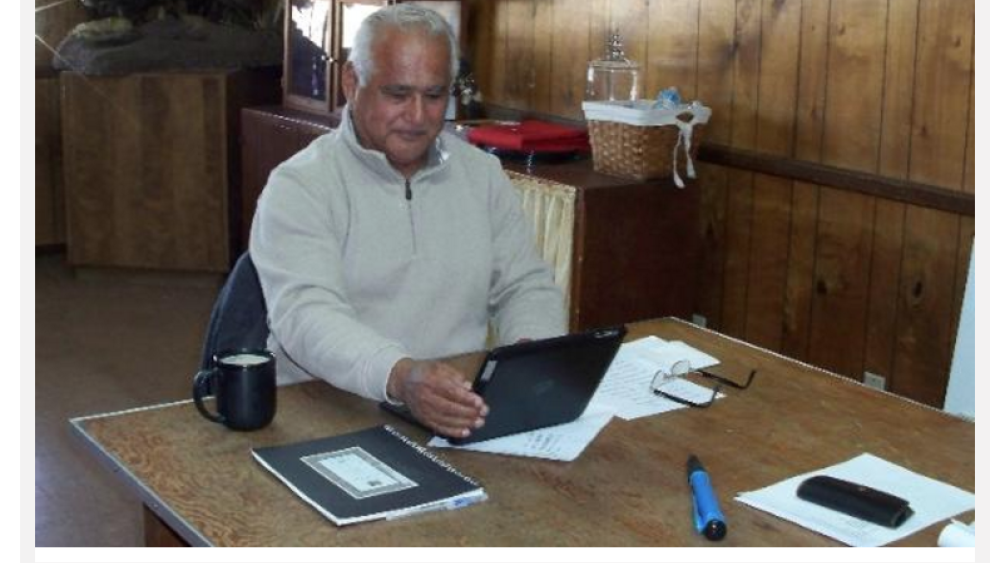
New Leadership for Tubatulabal Tribe; Recognition, Economic Development Among Top Priorities
The new year had barely dawned and Tubatulabal Tribe Chairman Robert Gomez was hard at work on the priorities he and the council had established for the year. It’s a heavy load: Federal recognition. Economic development. Professional development for tribal leadership. Community outreach. Continued…

Indian Self-Determination and Sovereignty
If ever a concept grabbed hold of hearts and minds in Indian country in the past couple decades surely it would be that of sovereignty. Native people talk about it with reverence, demanding that it be respected by the federal government, and expect their tribal governments to assert it. Even the…
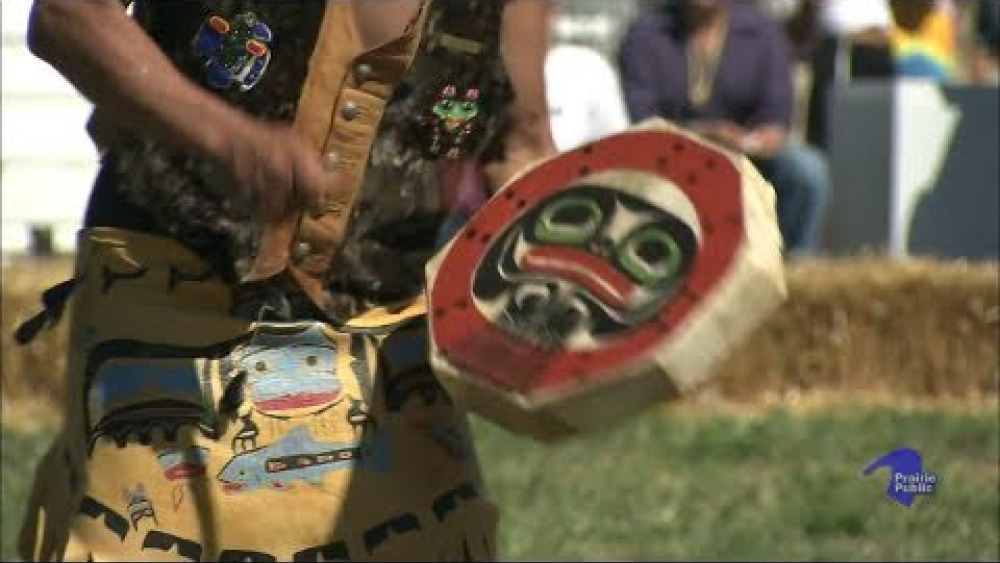
Indian Pride: Episode 102: Treaties & Sovereignty
Indian Pride, an American Indian cultural magazine television series, spotlights the diverse cultures of American Indian people throughout the country. This episode of Indian Pride features John Echohawk, Executive Director of the Native American Rights Fund, and focuses on understanding Indian…
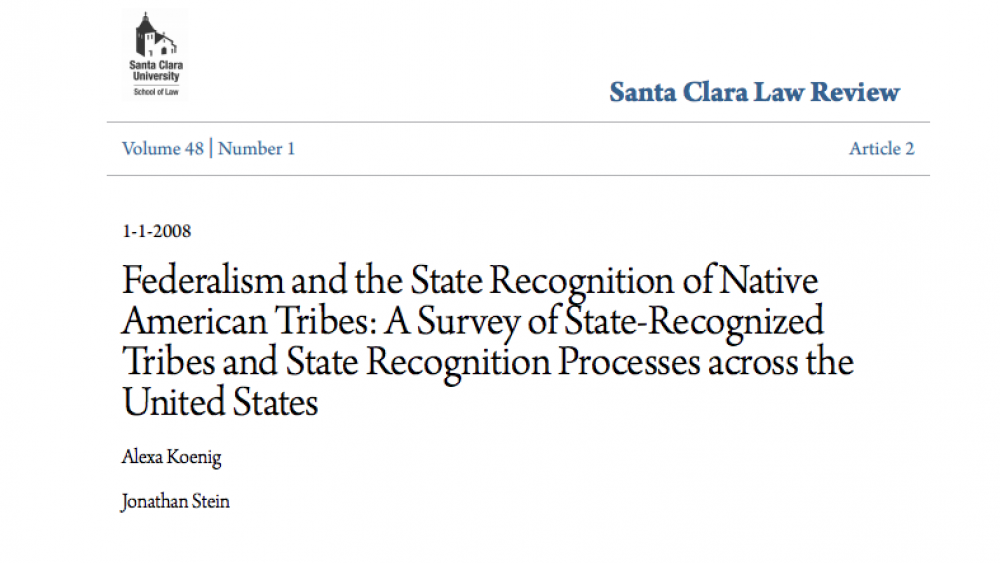
Federalism and the State Recognition of Native American Tribes: A Survey of State-Recognized Tribes and State Recognition Processes Across the United States
In the last few years, states and tribes have increasingly realized that state recognition can serve as an important, albeit limited, alternative to federal recognition. This realization is evidenced by the many states that have recently codified their state recognition processes or are planning to…
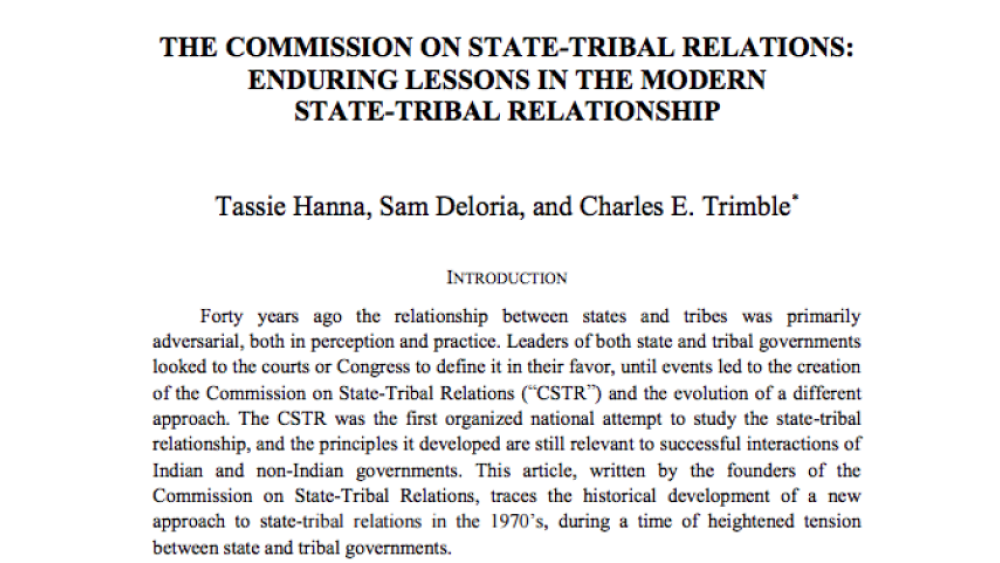
The Commission on State-Tribal Relations: Enduring Lessons in the Modern State-Tribal Relationship
(From the article introduction) Forty years ago the relationship between state and tribes was primarily adversarial, both in perception and practice. Leaders of both state and tribal governments looked to the courts or Congress to define it in their favor, until events led to the creation…
